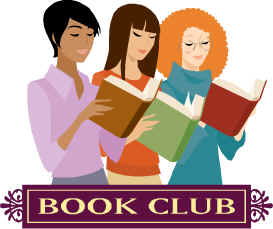
Hannibal Free Public Library
Mockingbird
by
Charles J. Shields
December 6, 2010
 |
Hannibal Free Public Library Mockingbird by December 6, 2010 |
Few
novels are as beloved and acclaimed as To
Kill a Mockingbird and
even fewer authors have shunned the spotlight
as successfully as its author. Journalist
Shields interviewed 600 of Harper Lee's
acquaintances and researched the papers of
her childhood friend Truman Capote. The book
percolates during her banner year of 1960,
when she won the Pulitzer Prize and helped
Capote research In
Cold Blood.
Shields believes Lee abandoned her second
novel when her agents and her editor—her
surrogate family in publishing—died or left
the business, leaving her with no support
system. There's a tantalizing anecdote about
a true-crime project Lee was researching in
the mid-'80s that faded away.
Discussion
Questions
1. Hypothesize: in light of Nelle Harper Lee's relationship to her mother, why is there no mother in To Kill a Mockingbird?
2. On the surface, Truman Capote and Nelle Harper Lee appeared to be so opposite as children. What was it about their lives and circumstances that led them to become close friends?
3.
Today,
social services address many of the problems
that were taken for granted about life in
4.
In
his New
Yorker magazine
review of Mockingbird:
A Portrait of Harper Lee, Thomas Mallon
writes about Harper Lee's father, "Mr.
Lee was a 'fond and indulgent father,' who,
in addition to practicing law, edited
5.
When In
Cold Blood was
nearly ready for publication, Capote told one
of the detectives on the Clutter case that
Nelle wouldn't be given any special credit in
the book- "she was just there."
How would you describe Nelle’s contribution
to In
Cold Blood?
6.
Gregory
Peck insisted that the film To
Kill a Mockingbird be
reedited several times to make the character
of Atticus more prominent at the expense of
the children's scenes. If you've seen the
film, is the film better or worse for Peck
getting his way?
7.
What
do you think was the Lee family's reaction to
Nelle's success and why?
8.
What
are some of the reasons you think that Harper
Lee never published another novel?
9.
Would
you characterize Miss Lee as a
"recluse" the way many reporters
have?
10.
In
his introduction to Mockingbird:
A Portrait of Harper Lee, Shields writes,
"Despite her desire for privacy, I
believe it is important to record Lee's story
while there are still a few people alive who
were part of it and can remember. I have
tried to balance her desire for privacy with
the desire of her millions of readers who
have long hoped for a respectful, informative
view of this rarely seen writer." Do you
agree with his reason for writing the book
while Lee was alive, and do you think he
accomplished his goal?
11.
Harper
Lee says that because most folks had no money
during the Great
Depression, children were forced to live in
their imaginations.
Now, of course, there are video games,
television, organized
sports,
and so on. Has this change made a difference
in children’s
ability
to imagine? What’s your opinion?
Adapted
from http://charlesjshields.com/content/questions.asp,
http://charlesjshields.com/PDF/I_Am_Scout_Guide.pdf,
and Publishers
Weekly.